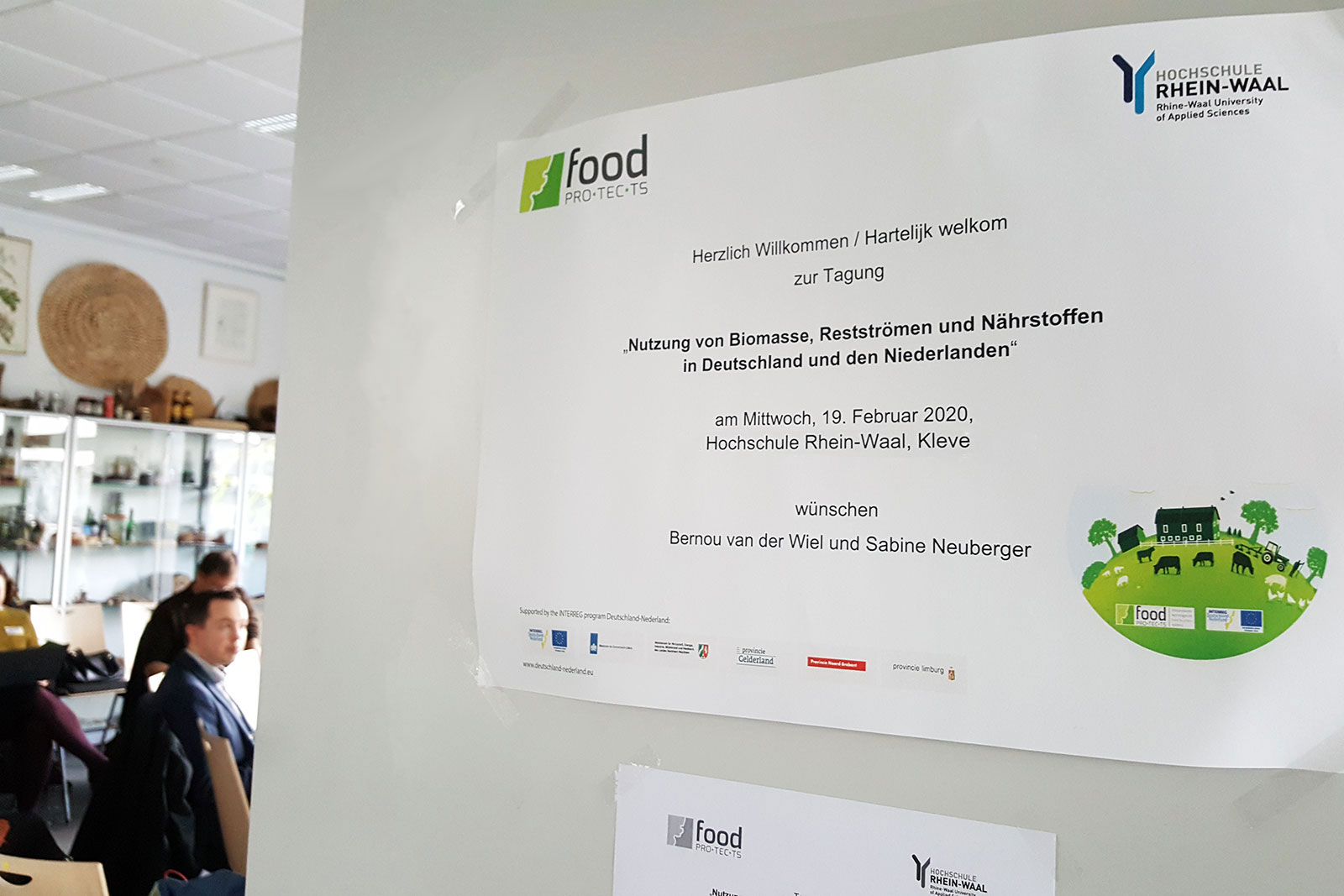Biomass symposium at the Rhine-Waal University of Applied Sciences in Kleve

In mid-February, a conference on the topic of “Use of biomass, residual flows and nutrients in Germany and the Netherlands” was held as part of the German-Dutch INTERREG V A project Food Pro·tec·ts. The aim of the event was to get an overview of biomass and nutrient cycles in the region around Kleve and to show potentials for closing cycles. This event served as a first step towards developing targeted concepts for the region.
Around 30 participants attended the conference – including farmers, representatives of the feed and food industry and authorities from the German-Dutch border region. At the beginning, four keynote speeches introduced the topic: Dennis Herzberg, Cluster Manager CLIB 2021, talked about the vision of a regional recycling economy by networking the supply and demand for biomass. Jan Weijma from Wageningen University spoke on the latest developments in science and application under the title “Reconnecting the end of the food chain with agriculture”. Carl-Hendrik May from the Nährstoffbörse Nordrhein-Westfalen presented examples of successful platforms for the promotion of a regional recycling economy. And Katrin Spoth from Forschungszentrum Jülich spoke about the network BioökonomieREVIER for circular value creation in the region Rheinischen Revier.
The participants then worked out an overview of the current status of the circular economy in the German-Dutch border region. The existing cooperation in the fields of education, consulting and research as well as the existence of nutrient and biomass flows were rated as particularly positive. However, according to the tenor of the participants, there is still some catching up to do in the efficient use of these flows as well as in the communication of the “circular flow concept”.
The event was moderated by Prof. Steffi Wiedemann, Professor of Animal Science and Environmental Impacts at the Rhine-Waal University of Applied Sciences, and the two project staff members Bernou van der Wiel and Sabine Neuberger. The next step in the project is to develop various scenarios for recycling management in the border region.
Food Pro·tec·ts is implemented under the INTERREG V A programme Deutschland-Nederland and co-financed by the European Regional Development Fund (ERDF) and the Dutch Ministry of Economic Affairs, MWIDE NRW and the provinces of Gelderland, Limburg and Noord-Brabant. It is accompanied by the programme management of the Euregio Rhein-Waal.
You can find the exact conference programme here.


